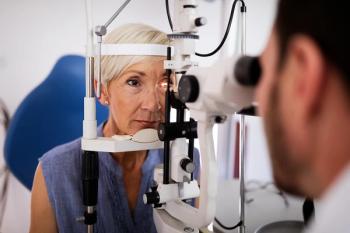
Emerging opportunities in inherited retinal diseases
Rachelle Lin, OD, MS, FAAO, details her presentation on inherited retinal diseases at CRU 2025.
One of Rachelle Lin's, OD, MS, FAAO, presentations at CRU 2025 focuses on the evolving landscape of inherited retinal diseases (IRDs) in optometry, highlighting significant advancements in genetic understanding and treatment. In 2017, a groundbreaking moment occurred with the first FDA-approved gene therapy for a specific genetic mutation associated with Leber's congenital amaurosis, marking a transformative period in IRD management. Genetic testing has become a crucial tool in patient care, providing unprecedented insights into disease characteristics. By identifying specific gene mutations, healthcare providers can now offer patients comprehensive information about their condition, including inheritance patterns, potential progression, and risks of passing the disease to future generations. This knowledge extends to understanding whether a condition is autosomal dominant, recessive, or X-linked.
Lin stated that at the Ketchum Health University Eye Center, nearly 20% of low vision clinic patients have IRDs. These patients are typically younger - in their 20s, 30s, and 40s - and are seeking early intervention. The clinic provides in-house genetic testing and counseling, which attracts patients looking for comprehensive care. The speaker emphasized the importance of early detection, particularly for children with family histories of IRDs. By diagnosing these conditions earlier, healthcare providers can potentially implement more effective management strategies and explore emerging treatments. Two key resources were highlighted: the American Academy of Ophthalmology's updated guidelines for IRD diagnosis and the American Optometric Association's 2024 publication report. These documents provide healthcare professionals with current, comprehensive information on diagnosing and managing inherited retinal diseases. The lecture underscores a significant shift in IRD management - from a condition with limited understanding to a field with genetic insights, potential therapies, and personalized patient care. The ability to provide patients with detailed genetic information not only aids in their current treatment but also helps them understand their long-term prognosis and potential family implications.
Newsletter
Want more insights like this? Subscribe to Optometry Times and get clinical pearls and practice tips delivered straight to your inbox.




























